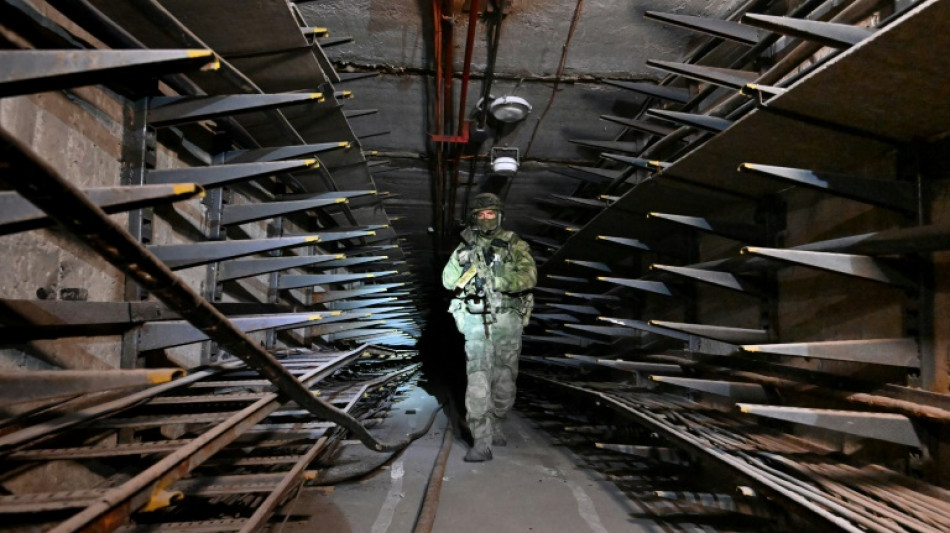
-
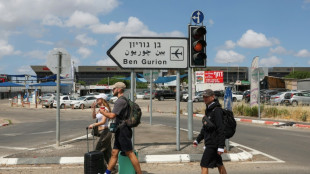 Israel says area of airport hit after Yemen missile launch
Israel says area of airport hit after Yemen missile launch
-
Romanians return to polls as far right hopes to win presidential rerun
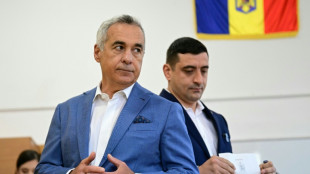
-
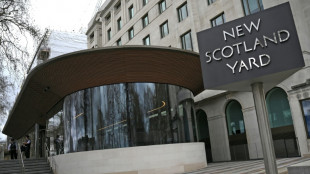 4 Iranians among 5 arrested in UK for 'terrorism offences': police
4 Iranians among 5 arrested in UK for 'terrorism offences': police
-
'Two million' throng Lady Gaga concert at Rio's Copacabana
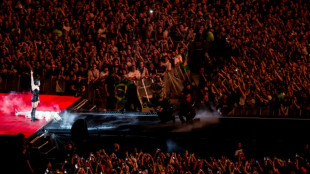
-
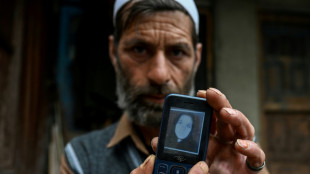 India-Pakistan gunfire triggers terror of past conflict
India-Pakistan gunfire triggers terror of past conflict
-
UK hard right sets sights high after local election triumphs
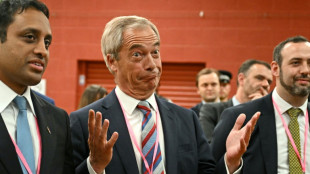
-
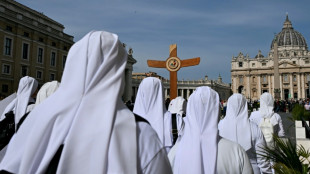 Sexual abuse of nuns: one of the Catholic Church's last taboos
Sexual abuse of nuns: one of the Catholic Church's last taboos
-
West German foothold of far-right AfD shows challenge for Merz
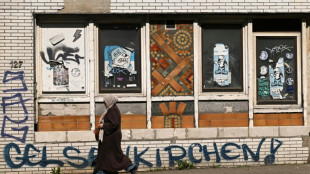
-
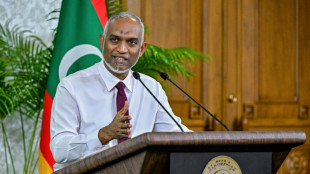 Maldives president holds record 15-hour press conference
Maldives president holds record 15-hour press conference
-
'Accept me': Near Ukraine front, a haven for outcasts
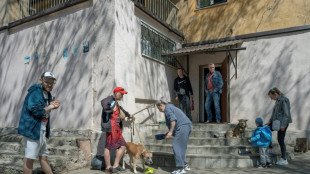
-
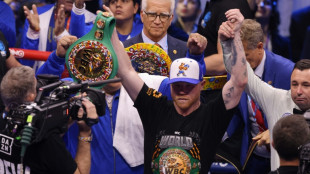 Canelo Alvarez unifies super middleweight titles on Saudi Arabia debut
Canelo Alvarez unifies super middleweight titles on Saudi Arabia debut
-
Canelo Alvarez unifes super middleweight titles on Saudi Arabia debut
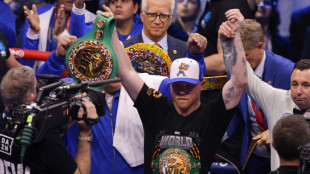
-
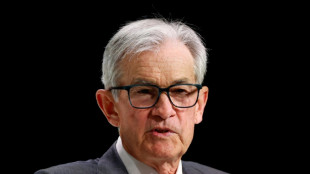 US Fed expected to pause cuts again and wait for clarity on tariffs
US Fed expected to pause cuts again and wait for clarity on tariffs
-
Ex-Liverpool star Firmino 'proud' after more Champions League history

-
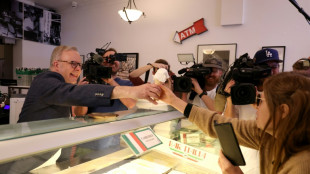 Australian PM basks in win, vows 'orderly' government
Australian PM basks in win, vows 'orderly' government
-
Qataris hooked on traditional fishing competition
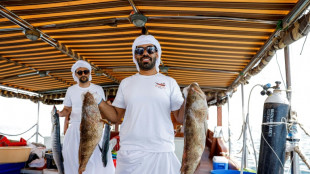
-
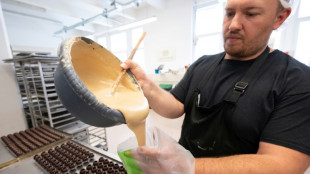 Mozart chocolate row leaves bitter taste in Austria
Mozart chocolate row leaves bitter taste in Austria
-
US solar tariffs could drive Asia transition boom
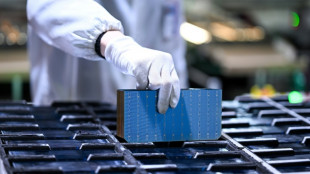
-
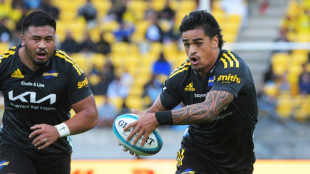 Four-try Hurricane Sullivan says revenge fuelled Chiefs upset
Four-try Hurricane Sullivan says revenge fuelled Chiefs upset
-
Nuggets rout Clippers to advance in NBA playoffs
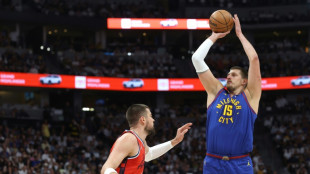
-
 Scheffler shines in dark for eight-shot CJ Cup Byron Nelson lead
Scheffler shines in dark for eight-shot CJ Cup Byron Nelson lead
-
Romania returns to polls after annulled presidential vote
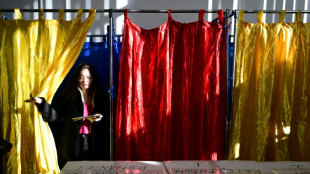
-
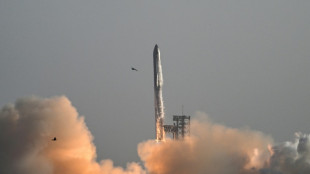 Easy vote turns Musk's dreams for Starbase city in Texas into reality
Easy vote turns Musk's dreams for Starbase city in Texas into reality
-
Messi and Miami bounce back with 4-1 crushing of Red Bulls

-
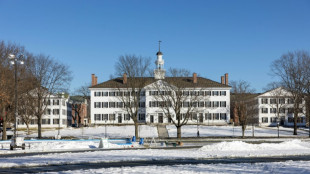 US researchers seek to legitimize AI mental health care
US researchers seek to legitimize AI mental health care
-
Ryu clings to two-shot lead at LPGA Black Desert Championship

-
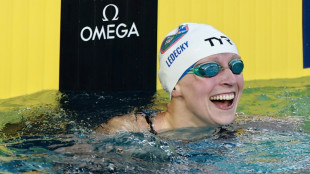 Ledecky, Walsh cap Pro Swim meet with world records
Ledecky, Walsh cap Pro Swim meet with world records
-
Sovereignty rules in 151st Kentucky Derby
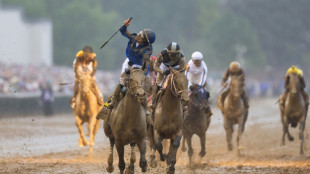
-
 McLaughlin-Levrone sets world's fastest of year in 400m hurdles
McLaughlin-Levrone sets world's fastest of year in 400m hurdles
-
Sovereignty wins 151st Kentucky Derby
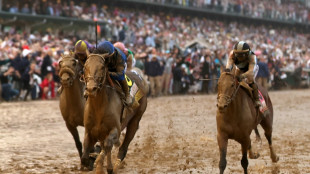
-
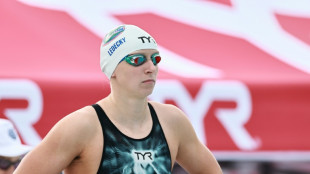 US swim star Ledecky smashes her longstanding 800m freestyle world record
US swim star Ledecky smashes her longstanding 800m freestyle world record
-
Antonelli's teenage pace impresses Verstappen
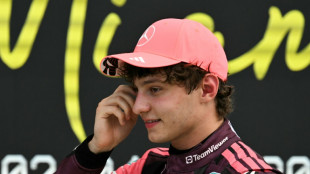
-
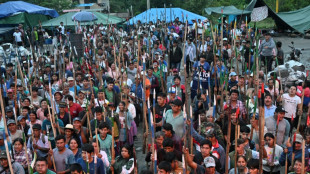 From stronghold guarded by backers, Bolivia ex-leader plots return
From stronghold guarded by backers, Bolivia ex-leader plots return
-
Barca stay on Liga title track with Valladolid comeback
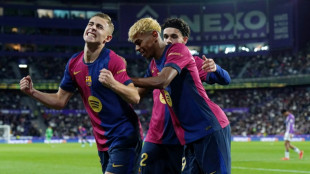
-
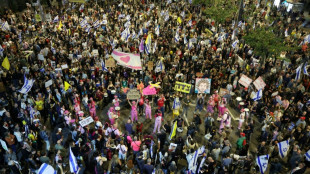 Israel calls up tens of thousands of reservists for Gaza offensive
Israel calls up tens of thousands of reservists for Gaza offensive
-
Verstappen takes pole position for Miami Grand Prix
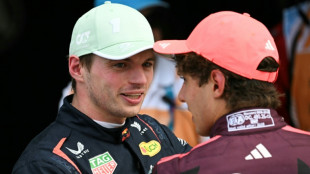
-
 Williams beats Trump to set up World Snooker final with Zhao
Williams beats Trump to set up World Snooker final with Zhao
-
Warren Buffett to retire from Berkshire Hathaway by year's end
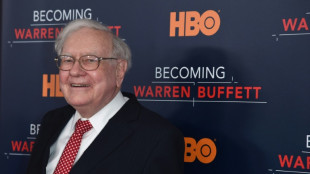
-
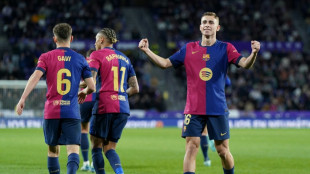 Barca battle back at Valladolid to preserve Liga title charge
Barca battle back at Valladolid to preserve Liga title charge
-
'Like a dream' says dominant Sabalenka after third Madrid title
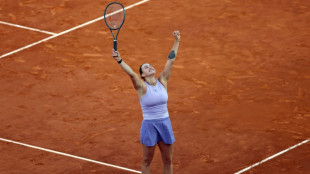
-
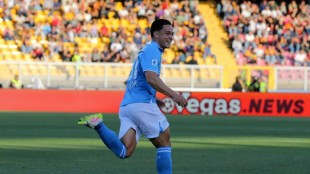 Napoli move step closer to Serie A crown after win at fiery Lecce
Napoli move step closer to Serie A crown after win at fiery Lecce
-
Williams beats Trump to set up World Snooker final with Zhao Xintong

-
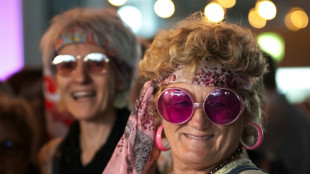 Eurovision limbers up with over-60s disco
Eurovision limbers up with over-60s disco
-
'Surreal' Freeman hat-trick stuns Leinster to take Northampton into Champions Cup final

-
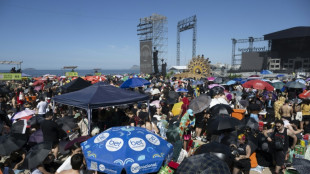 Huge crowds head to Copacabana for free Lady Gaga concert
Huge crowds head to Copacabana for free Lady Gaga concert
-
Warren Buffett: billionaire investor with simple tastes
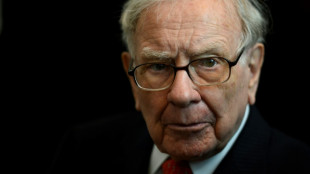
-
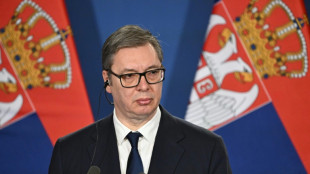 Serbian president out of hospital after cutting short US trip
Serbian president out of hospital after cutting short US trip
-
Arsenal rocked by Bournemouth, Villa boost top five bid

-
 Freeman hat-trick stuns Leinster to take Northampton into Champions Cup final
Freeman hat-trick stuns Leinster to take Northampton into Champions Cup final
-
Warren Buffett says will retire from Berkshire Hathaway by year's end
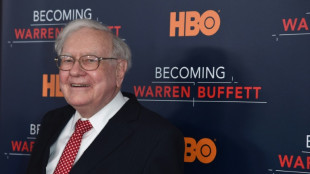

In the tunnels of Azovstal, traces of Ukraine's resistance
Scrapped metal and concrete debris is all that remains of the Azovstal steel factory in Mariupol, a symbol of Ukraine's weeks-long resistance against the Russian army in the devastated port city.
The defenders of Mariupol made a last stand at Azovstal, taking shelter in a warren of underground tunnels beneath the steel plant before surrendering in May.
Now Russian soldiers and their separatist allies with white armbands patrol the ruins of the Soviet-era factory that was once the pride of Mariupol and employed more than 12,000 people.
AFP journalists were among the first reporters to go inside the bombed-out plant as part of a press tour organised by the Russian defence ministry.
Controlled explosions could be heard at regular intervals across the plant's vast territory as Russian soldiers carried out de-mining operations.
Reporters were taken down into the maze of tunnels where hundreds of Ukrainian defenders and civilians spent weeks holed up underground as the Russians bore down.
The Ukrainian troops finally surrendered in May, with President Volodymyr Zelensky saying the country needed its "heroes" alive.
The plant's network of tunnels and bunkers was built during the Cold War and designed to shield workers from a possible nuclear attack.
Inside one dark room, belongings and clothes look hastily abandoned, scrunched up on the floor and on the metal bunk beds with no mattresses.
Bullet casings lie scattered on the ground, while the tables are covered with bandages, cups, plates and photographs of soldiers, likely those who died in battle.
The organisers of the press tour said the rooms were occupied by fighters from the Azov regiment, a former paramilitary unit which has integrated into the Ukrainian armed forces.
Russia describes the regiment, which has previous links to far-right groups, as a neo-Nazi organisation.
On the walls of a staircase leading down into the tunnels, reporters could see graffiti resembling a "Black Sun", a Nazi symbol. It was not clear who drew it.
- Big role of fighter jets -
The fighters inside Azovstal withstood the attacks of the Russian army for over a month, while the rest of the city had already fallen under Moscow's control after a devastating siege.
Around 2,000 Ukrainian soldiers who surrendered to the Russian forces are believed to be in the custody of pro-Moscow separatists in eastern Ukraine, with Moscow insisting they should stand trial.
Ruslan, a pro-Moscow fighter who took part in the assault on Azovstal, praised the "big role" of fighter jets in the battle for the plant.
"I think that's why they surrendered," said the 34-year-old soldier with a salt-and-pepper beard who goes by the nickname "Wolf".
Originally from Transnistria, a pro-Russian separatist region in Moldova, Ruslan has been fighting in eastern Ukraine since 2014.
The Ukrainians were "trained, they felt comfortable here", he said.
"It was difficult for us because it was unfamiliar terrain and they had everything close at hand. In each room there were supplies of weapons, ammunition."
Another fighter, Andrei, said the tunnels also played a major role.
"It was convenient to hide there, defend themselves," said the 43-year-old, who hails from the region of Donetsk in eastern Ukraine.
The fighter also appeared to contradict the official Russian line that the majority of the "nationalist" fighters at the plant came from other regions.
"The people of Azov were 70 percent from Mariupol, locals," said the soldier who sported a scarf covering his face and wore a cap with the letter Z, a symbol of Russia's military intervention in Ukraine.
He said that because many were locals, they could "bring in" their families to shelter with them.
Hundreds of civilians, including women and children, had been evacuated from beneath Azovstal where they were sheltering with the soldiers.
Three months of fighting in Mariupol have sent hundreds of thousands of people running for their lives and caused untold suffering and death.
Those who stayed are now adjusting to a new life under Russian control.
Some told AFP their main difficulty was the lack of electricity and water.
F.Dubois--AMWN